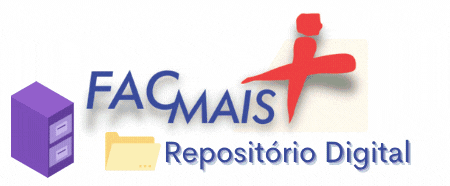Use este identificador para citar ou linkar para este item:
http://65.108.49.104:80/xmlui/handle/123456789/507Registro completo de metadados
| Campo DC | Valor | Idioma |
|---|---|---|
| dc.creator | GASPARINO, Geize da Silva | - |
| dc.date.accessioned | 2022-09-15T16:51:46Z | - |
| dc.date.available | 2022-05-22 | - |
| dc.date.available | 2022-09-15T16:51:46Z | - |
| dc.date.issued | 2022-05-22 | - |
| dc.identifier.uri | http://65.108.49.104:80/xmlui/handle/123456789/507 | - |
| dc.description.abstract | The present work aims to understand the importance of the game for the development and learning in Early Childhood Education. It is undeniable that teachers who work in the educational area need to use games in their daily activities. Through play, the child develops cognitive skills, facilitating their growth in physical, cognitive, motor, and social aspects. Through games, the child finds it easier to express himself, imitate, and listen to the people he lives with, with this, he meets the rules and learns to give and/or pass the turn in a more "fun" way. "fun way to communicate. For this, we sought, through bibliographic research, to analyze the main ideas of the most renowned authors on the subject. Considering that there is no effective practice without the presence, the considerations made by some important researchers are valid such as Piaget, Dewey, and Froebel, having as a starting point the games as an essential action in the teaching-learning process. It is necessary that the educator knows the basic principles and the use of the ludic to work specifically with the students' difficulties and apply and monitor all the processes. The act of playing is more than a simple recreation, it is a necessity that the child has to understand the world around him. The game allows the child to move, create, imagine, see and feel. She is experiencing the world for the first time, so she needs, and wants, to live everything with intensity, learning something new every day. | pt_BR |
| dc.language | por | pt_BR |
| dc.publisher | Faculdade Facmais | pt_BR |
| dc.rights | Acesso Aberto | pt_BR |
| dc.subject | Ludicidade | pt_BR |
| dc.subject | Brincadeira | pt_BR |
| dc.subject | Aprendizagem | pt_BR |
| dc.title | O PAPEL DA LUDICIDADE NA FORMAÇÃO DA CRIANÇA: O JOGO, O BRINQUEDO, A BRINCADEIRA E SUAS CONTRIBUIÇÕES PARA A APRENDIZAGEM NA EDUCAÇÃO INFANTIL | pt_BR |
| dc.type | Trabalho de Conclusão de Curso | pt_BR |
| dc.creator.Lattes | http://lattes.cnpq.br | pt_BR |
| dc.contributor.advisor1 | BORGES, Elisabeth Maria Fátima | - |
| dc.contributor.advisor1Lattes | http://lattes.cnpq.br | pt_BR |
| dc.description.resumo | O presente trabalho tem como objetivo compreender a importância do jogo para o desenvolvimento e aprendizagem na Educação Infantil. É incontestável o fato de que os professores, que atuam na área educacional, necessitam do uso dos jogos em suas atividades cotidianas. Através do lúdico, a criança desenvolve habilidades cognitivas, facilitando seu crescimento nos aspectos físicos, cognitivos, motor e social. Por meio dos jogos, a criança tem maior facilidade de se expressar, imitar e ouvir as pessoas com quem convive, com isso, ela atende às regras e aprende a dar e/ou passar a vez de modo mais "divertido". " Para isso, buscou-se, através da pesquisa bibliográfica, analisar as principais ideias dos mais renomados autores sobre o assunto. Considerando que não há prática eficaz sem a presença, são válidas as considerações feitas por alguns importantes pesquisadores como Piaget, Dewey e Froebel, tendo como ponto de partida os jogos como ação essencial no processo de ensino-aprendizagem. É necessário que o educador conheça os princípios básicos e a utilização do lúdico para trabalhar especificamente as dificuldades dos alunos, aplicar e acompanhar todo o processo. O ato de brincar é mais do que uma simples recreação, é uma necessidade que a criança tem que compreender o mundo ao seu redor. O jogo possibilita a criança a se movimentar, criar, imaginar, ver e de sentir. Ela está experimentando o mundo pela primeira vez, por isso ela precisa, e quer, viver tudo com intensidade, aprendendo todo o dia uma coisa nova. | pt_BR |
| dc.publisher.country | Brasil | pt_BR |
| dc.publisher.department | Departamento 1 | pt_BR |
| dc.publisher.initials | FACMAIS | pt_BR |
| dc.subject.cnpq | CNPQ::CIENCIAS HUMANAS::EDUCACAO | pt_BR |
| Aparece nas coleções: | Trabalho de Conclusão de curso | |
Arquivos associados a este item:
| Arquivo | Descrição | Tamanho | Formato | |
|---|---|---|---|---|
| TCC GEIZE.docx | 74.66 kB | Microsoft Word XML | Visualizar/Abrir |
Os itens no repositório estão protegidos por copyright, com todos os direitos reservados, salvo quando é indicado o contrário.
